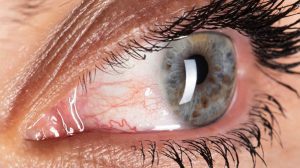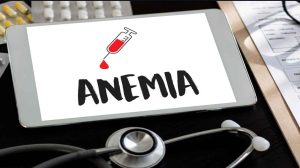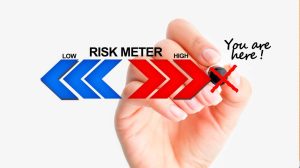Vitamin B12 is a very important vitamin. Our body does not know how to produce it, and we have to get it in our diet. What are the sources of vitamin B12? How will you know if you miss him? What might happen if you don’t have enough of it in your body? When should you take a supplement containing the vitamin?
Vitamin B12 deficiency can cause anaemia, nerve damage, depression and memory and development disorders.
A diet low in vitamin B12, problems with its absorption from the digestive system and the effect of medications can cause a deficiency.
After a vitamin B12 deficiency is discovered in a blood test, it can be treated with lozenges or injections.
Vitamin B12 is an essential nutrient for the human body. B12, which belongs to the B vitamin family, has important roles in the production of red blood cells and other blood cells, in the normal functioning of the nervous system and in the construction of DNA.
Our body is not able to produce B12 on its own, and it can be obtained mainly from animal nutrition. People of all ages (babies, children, teenagers, adults, pregnant and lactating women and the elderly) need a sufficient amount of it in food or supplements.
Despite the importance of this vitamin, lack of vitamin B12 is a common phenomenon in the Western world in general.
What foods contain vitamin B12?
As mentioned, the person is not able to produce B12 vitamin, and he has to get it as part of the menu.
B12 Vitamin is found in foods of animal origin such as beef, poultry, fish, eggs, milk and dairy products.
Are there plant foods that contain B12?
It is important to know that B12 does not appear in plant foods. However, plant-based foods enriched with this vitamin are sold, for example breakfast cereals. Brewer’s yeast may also contain a small amount of B12.
Vitamin B12 content in some types of foods for example
(The data is based on the website of the National Institutes of Health of the United States )
| The type | The estimated vitamin B12 content |
| Boiled beef liver | 83.2 |
| Cooked salmon | 4.1 to 6.4 |
| Emmental cheese | 3.2 |
| Light tuna | 2.9 |
| Roasted beef fat | 1.6 |
| hard boiled egg | 0.9 |
| Low fat milk | 0.5 |
| Yogurt with fruit, low-fat | 0.5 |
| Roasted chicken breast | 0.35 |
| Nutritional yeast that is enriched with 100% of the daily intake of B12 | 16 |
| Breakfast cereals that are fortified with 25% of the daily intake of B12 | 2 |
What are the normal values of B12 in the body?
The normal values of B12 are between 180 and 712 picomoles per liter.
How is vitamin B12 deficiency diagnosed?
The diagnosis is made through a simple blood test that measures the levels of vitamin B12 in the blood.
In addition to this test, the doctor may also recommend a blood count to determine the numbers of the various blood cells. If there is a concern about anemia, the doctor will also recommend tests of iron levels and folic acid levels in the blood.
In some cases where a lack of vitamin B12 is detected, and especially in cases where there is a fear of pernicious anemia, the doctor will recommend additional tests such as an MMA (methyl melanolic acid) test, a test for the presence of antibodies to the intrinsic factor and other tests according to his discretion.
What can happen as a result of B12 deficiency?
A lack of B12 may lead to anemia – a condition in which the red blood cells are not produced efficiently, which causes a lack of oxygen and energy in the body’s cells. People who suffer from anemia become weak, tired, pale, lack energy and sometimes also very sensitive to cold. Severe anemia can cause heart rhythm disturbances and a rapid pulse .
When the anemia is caused by low levels of B12, it is called megaloblastic anemia, and it is characterized by swollen red blood cells. Sometimes megaloblastic anemia is also accompanied by a lack of folic acid (vitamin B9).
A severe deficiency of vitamin B12 may cause neuropathy, a condition in which there is damage to nerve cells and their normal function. Those with neuropathy may suffer from pain, numbness, tingling, numbness, burning or stabbing sensations in the nerve endings throughout the body, especially in the hands and feet.
In addition to all of this, it became clear that a lack of B12 is associated with the risk of developing dementia in old age, and it also became clear that such a lack causes depression , confusion, memory disorders and pain in the oral cavity and tongue.
And what about babies and small children? They may suffer from growth and development disorders, movement disorders and anemia.
What are the symptoms of B12 deficiency?
A slight deficiency of B12 usually does not cause symptoms and is not noticeable.
A significant lack of vitamin B12 may be reflected in the following side effects: fatigue, weakness , pallor, heart rhythm disturbances, weight loss, burning sensation in the tongue and in the oral cavity, memory loss, depression, low mood, movement disorders, pain and sensory disturbances in the nerve endings.
Why might there actually be low values of B12?
Several reasons can cause a lack of B12:
• Dietary deficiencies : A diet low in vitamin B12 may be more common among vegans, vegetarians or people who do not consume animal food for religious, ethical or moral reasons. Even though vegetarians consume eggs and milk, they too may suffer from vitamin B12 deficiency.
• Decreased absorption of B12 from the digestive system :
B12 is absorbed from the digestive system in two stages:
1. Primary decomposition by stomach acid.
2. After the decomposition, the vitamin adheres to the protein produced in the stomach called the intrinsic factor (in English: intrinsic factor) which helps its absorption in the intestines.
The human body is able to store an amount of B12 that is usually enough for 3 to 5 years.
A decrease in the absorption of B12 may occur, for example, in cases of inflammatory bowel diseases, celiac disease , pancreatic insufficiency and infections in the digestive system. Patients after intestinal and bariatric surgeries may also suffer from a decrease in the absorption of B12 from the digestive system.
• Autoimmune diseases (autoimmune diseases) : for example, pernicious anemia, vitiligo , thyroid diseases . Pernicious anemia is not a cancerous disease, but rather a type of anemia (which may cause megaloblastic anemia) in which the absorption capacity of vitamin B12 is impaired. In this case, there is damage to the cells in the stomach that produce the intrinsic factor protein, whose role is to help the absorption of B12 from the digestive system.
• Taking medications : these are the medications that may reduce the absorption of B12:
Metformin – a very important drug for the treatment of diabetes .
Medicines from the PPI family to treat ulcers (stomach ulcers) and acidity in the digestive system. For example: Ompredex , Lusk (omeprazole), Lanton (lansoprazole), Controlloc (pantoprazole) and Nexium (esomeprazole).
Additional medications for the treatment of ulcers and acidity in the digestive system such as H2 histamine receptor blockers including famotidine .
Low levels of B12 as a result of taking drugs have been observed after long-term use of these drugs, usually after 2 to 3 years from the start of their use.
• Older age : The elderly may suffer from a lack of B12 for several reasons, including a diet low in B12, taking one or more of the medications described above, diseases of the digestive system and changes in the digestive system due to ageing.
• Pregnant and lactating women may suffer from a lack of B12, especially if their diet is low in this vitamin, such as vegan or vegetarian women.
• Rare genetic diseases may cause various disturbances in the absorption of B12 or its activity in the body.

Vitamin D3, Whats the story?
How much vitamin B12 to consume per day?
It is important to follow a balanced diet, which contains all the nutrients, including B12. In some cases, even if you consume plenty of foods rich in B12, there may be problems with its absorption. If a lack of B12 is detected, follow the recommendations of the attending physician.
When to take vitamin B12? What options are there?
In cases of deficiency, vitamin B12 can be taken in the form of lozenges or treated with injections. In most cases, the effectiveness of the lozenge tablets is the same as the effectiveness of the injections, which is why it is the recommended of the two. In cases where there are problems with the absorption of vitamin B12 from the digestive system or in cases of severe anemia, the doctor is expected to recommend injections.
• Vitamin B12 lozenge tablets: the accepted dose is one tablet (of 1,000 micrograms), once a day, to be lozenged under the tongue. In cases of significant deficiency, the doctor may recommend 2 tablets a day.
It is important to note that vitamin B12 is also included in nutritional supplements such as multivitamins or supplements containing a complex of B vitamins. However, the amount of vitamin B12 in these preparations is often small and does not treat cases of deficiency.
Is it recommended to take B12 tablets before or after food?
Since food does not affect the vitamin, it does not matter if you take vitamin B12 before food, with the meal or after the meal.
• Injections of vitamin B12 : the injections are given – into the muscle – by a doctor or nurse at the clinic. The accepted dose at the beginning of the treatment is one injection per week, and later the dose decreases to one injection per month. In cases of a chronic condition that causes a lack of vitamin B12, the doctor may recommend an injection once a month regularly.
Vitamin B12 is also known as cobalamin, hydroxocobalamin, cyanocobalamin and methylcobalamin.
What happens in cases of excess vitamin B12?
Vitamin B12 is water soluble, and when you consume too much of it, the body excretes the excess in the urine. There are no known symptoms of vitamin B12 overdose toxicity, as long as you do not take more than what is indicated on the label or what the doctor recommends.
Can taking vitamin B12 cause cyanide poisoning?
Despite stressful publications in the various media, there is no fear of using the accepted preparations of vitamin B12.
Both the lozenges and the injections contain a substance called cyanocobalamin. Although this name mentions the word cyanide, cyanocobalamin does not cause cyanide poisoning. A very small proportion (less than 2%) of the cyanocobalamin turns into cyanide in the body and is excreted directly from the bloodstream into the urine.
In all the years in which cyanocobalamin is marketed, no twoAnd even about one case of cyanide poisoning as a result of vitamin B12 consumption (it should be noted that some of the foods we consume, such as almonds, also contain cyanide).
In the case of patients with Leber’s retinal degenerative disease – a genetic disease that causes blindness over time – the use of cyanocobalamin is not recommended because it may cause vision problems. If they suffer from a lack of vitamin B12, they should consult their doctor about other treatment.
There are nutritional supplements on the market that contain another form of vitamin B12 called methylcobalamin, but its use is less scientifically based than cyanocobalamin.
General recommendations for different population groups
• Vegetarians and vegans should follow a balanced diet that contains all the nutrients, including vitamin B12. If their diet is low in vitamin B12, it is recommended that they take a nutritional supplement that contains vitamin B12. A regular test of vitamin B12 in the blood is also recommended, as often as determined by the attending physician. If a vitamin B12 deficiency is found, they must use lozenges and continue regular monitoring of vitamin B12 blood tests. The doctor may also refer you to a dietician .
• Pregnant and lactating women : the doctor is expected to recommend blood tests to check the levels of vitamin B12, especially among those who are vegan and vegetarian. In the case of an expected deficiency, the doctor will recommend the administration of vitamin B12 in lozenge tablets or injections. Among lactating women who suffer from a deficiency in vitamin B12, the baby may also suffer from this, so it is important to be checked. The doctor may also refer you to a dietician.
• Patients with diseases of the digestive system or after surgeries in the digestive system (including bariatric surgeries) : the doctor is expected to recommend regular tests of vitamin B12. If a deficiency is found, the doctor is expected to recommend lozenges or injections of vitamin B12. The doctor may also refer the patient to a dietician.
• Patients with pernicious anemia will often be treated with injections of vitamin B12.
• Diabetics who take the drug metformin should adhere to a diet that is suitable for diabetics and which will also meet the need for vitamin B12. After 2 to 3 years from the start of metformin treatment or in cases where neuropathy develops as a result of diabetes, the doctor is expected to recommend routine tests of vitamin B12 in the blood. In cases of expected deficiency, the doctor will recommend treatment with vitamin B12.
• Patients taking medications to treat hyperacidity of the stomach should adhere to an appropriate diet that will reduce symptoms in the digestive system. For patients who use these drugs for a long time (more than 2 to 3 years) and especially for the elderly, vegetarians and vegans, the doctor is expected to recommend routine blood tests of vitamin B12 in the blood. In cases of deficiency, the doctor is expected to recommend the administration of vitamin B12.
• Elderly : the doctor will monitor the levels of vitamin B12 in the blood. The elderly must follow a balanced and good diet that contains all the essential components. In cases of vitamin B12 deficiency in the elderly, the doctor is expected to recommend lozenges to correct the deficiency, and in cases of a large deficiency, he may recommend injections. The doctor may also refer you to a dietician.












Add Comment